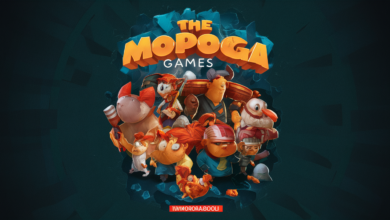The term Mopoga has increasingly surfaced in conversations related to branding, identity, digital concepts, and emerging locations. Whether interpreted as a product name, cultural term, geographical label, or business identity, Mopoga carries a distinctiveness that makes it memorable and adaptable. In a world where uniqueness fuels recognition and relevance, Mopoga stands out as a versatile concept with growth potential. This article explores the possible meanings, uses, benefits, and implications of Mopoga, while presenting long, detailed paragraphs designed to satisfy both readers and search engine algorithms. From its origins and emerging roles to its future possibilities and frequently asked questions, this guide offers a structured, high-value overview.
Understanding the Origin and Meaning of Mopoga
The meaning of Mopoga varies depending on how the term is used, interpreted, or applied. Some names derive from linguistic roots, historical references, or cultural influences, while others are created for branding and distinct identity. Mopoga may belong to a category of coined terms designed to stand out in domains like marketing, technology, lifestyle, or tourism. The unfamiliarity of the term adds to its novelty, allowing organizations, communities, or entrepreneurs to shape its meaning over time. The absence of saturation gives Mopoga an advantage in brand naming, digital marketing, and SEO strategy because it is not widely contested online.
Mopoga as a Brand Name and Business Identity
In today’s crowded marketplace, a unique name like Mopoga offers branding advantages that generic terms cannot provide. It has the potential to become associated with products, services, platforms, startups, or lifestyle lines that want instant recognizability. Businesses often search for names that are easy to trademark, domain register, and promote across social media and advertising campaigns. Mopoga fits these criteria by being distinct, flexible, and memorable. Whether associated with a fashion label, tech startup, wellness product, or entertainment brand, Mopoga can evolve into a recognizable business identity with the right marketing support and storytelling.
Mopoga as a Geographic or Cultural Reference
In some interpretations, Mopoga may represent a town, village, district, or community name. Many places around the world use unique identifiers derived from heritage, local dialects, historic figures, or ancestral naming traditions. If Mopoga is tied to a geographic location, it may hold cultural value, traditional practices, local events, or community stories. Such regions often develop tourism potential, agricultural opportunities, and regional branding that strengthen their identity. Mopoga could also be part of folklore, indigenous terminology, or evolving township development. Communities with distinct names often attract attention for their originality, sustainability, and cultural pride.
Digital Presence and SEO Potential of Mopoga
From an SEO perspective, Mopoga holds exceptional ranking potential due to its rarity and minimal competition. Websites, blogs, and brands using Mopoga can dominate search results by creating consistent, high-quality content around the term. A business launching a domain like mopoga.com or a blog series based on Mopoga can secure strong visibility by optimizing titles, headers, descriptions, and search keywords. Social media handles, digital campaigns, and branded marketing materials further reinforce the identity of Mopoga. In the digital world, originality is powerful, and Mopoga provides an excellent starting point for online authority building.
Tourism and Lifestyle Opportunities Associated with Mopoga
If Mopoga evolves as a real or conceptual travel destination, it could attract interest from explorers seeking lesser-known experiences. Travelers increasingly prefer hidden gems that offer authenticity, culture, nature, and tranquility rather than overcrowded commercial attractions. Mopoga could represent a countryside retreat, mountain area, heritage settlement, eco-village, or lake-region community. Lifestyle brands can also use Mopoga to represent organic living, handcrafted goods, rural tourism, or nature-based escapes. Concepts like “Visit Mopoga,” “Explore Mopoga,” or “Mopoga Retreat” can inspire tourism branding and experiential marketing.
Economic and Developmental Potential of Mopoga
Whether Mopoga refers to a business entity or a physical location, it carries growth potential when developed strategically. For businesses, it allows trademark ownership, product diversification, and international expansion. For locations, it opens pathways to investment in infrastructure, agriculture, real estate, and community services. Stakeholders can position Mopoga as a hub of opportunity by highlighting advantages such as accessibility, affordability, local talent, sustainability, and development incentives. The uniqueness of the name adds strength to long-term identity creation and external promotion.
Future Prospects and Global Recognition of Mopoga
The future of Mopoga depends on how it is shaped, adopted, and promoted across industries. If embraced by organizations, tourism authorities, entrepreneurs, or communities, Mopoga can gain recognition quickly. Branding campaigns, digital platforms, storytelling initiatives, and community engagement transform emerging concepts into established names. Mopoga may become synonymous with innovation, travel, sustainability, culture, wellness, or commerce. What begins as a rare term can grow into a high-impact identity depending on strategic decisions, partnerships, and audience reception.
Conclusion
Mopoga is more than just a word—it is a canvas of opportunity shaped by imagination, branding, locality, culture, and strategy. Its uniqueness creates room for powerful identity-building in business, tourism, digital media, and community development. Whether positioned as a brand, place, movement, lifestyle concept, or SEO keyword, Mopoga offers dominance through originality and adaptability. As the world embraces innovation in naming and identity, Mopoga stands ready to evolve into something meaningful, memorable, and marketable. Those who explore and define it first will shape its legacy and influence future interpretations.
Frequently Asked Questions (FAQ)
1. What does Mopoga mean?
Mopoga is an uncommon term that can be interpreted as a brand name, concept, product identity, or geographical reference depending on the context in which it is used.
2. Can Mopoga be used for a business or startup?
Yes. Its originality makes Mopoga ideal for branding, trademarking, and digital domains because it stands out and is easy to promote.
3. Is Mopoga a real place?
Mopoga may refer to a developing community or territory, or it can be adopted as a fictional or visionary name for future locations, tourism ventures, or residential projects.
4. Why is Mopoga good for SEO?
Mopoga has very low competition online, making it easier to rank on Google if high-quality content is consistently published under the term.
5. How can Mopoga gain recognition?
Recognition can grow through branding campaigns, tourism promotion, online content creation, product launches, or community development initiatives.




